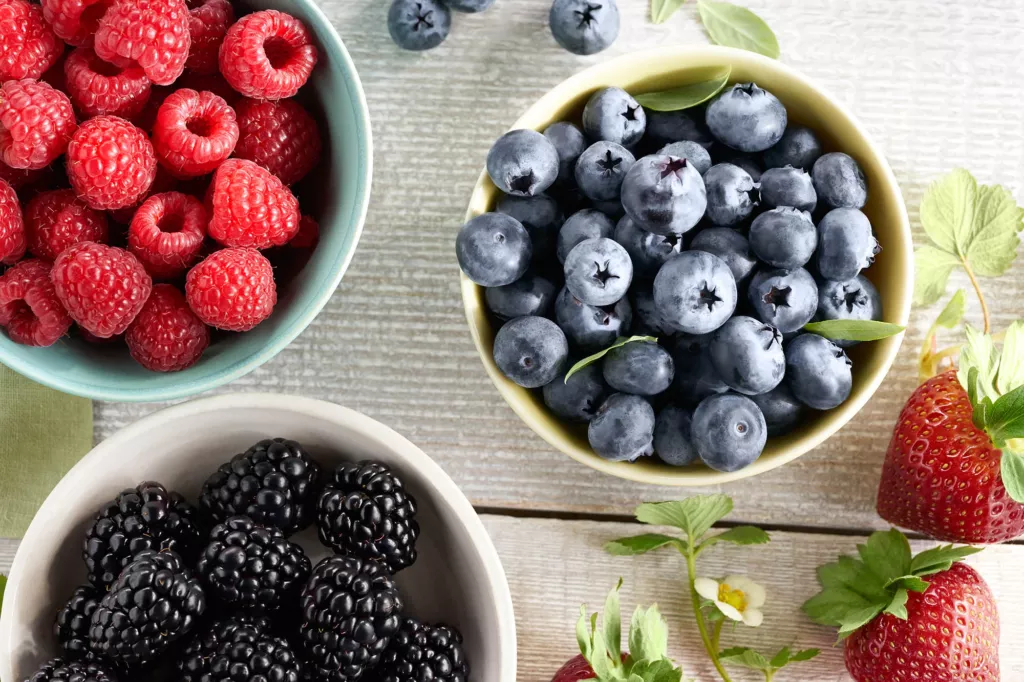Are you a diabetes patient looking for a delicious and nutritious way to manage your condition? we explore the incredible benefits of incorporating berries, such as strawberries, blueberries, raspberries, and blackberries, into your diet. Find out how these juicy wonders can help you maintain healthy blood sugar levels and improve your overall well-being.
Introduction
Living with diabetes can be challenging, but that doesn’t mean you have to compromise on flavor or give up on your favorite foods. In fact, nature has blessed us with a delectable solution in the form of berries! Strawberries, blueberries, raspberries, and blackberries are not only delicious but also offer a myriad of health benefits, especially for diabetes patients. So let’s dive into the succulent world of berries and discover why they should become a delightful addition to your diet!

The Power of Nature’s Bounty
Berries, regardless of their color or size, are packed with essential nutrients, antioxidants, and fiber. These tiny powerhouses contain natural sugars with a low glycemic index, making them a smart choice for diabetes patients. Let’s take a closer look at the incredible benefits these berries offer:
Strawberries: A Sweet and Tangy Delight
Strawberries, the quintessential summer fruit, boast a delightful combination of sweetness and tanginess. But did you know they also offer a host of health benefits, especially for diabetes patients? Here’s why you should indulge in these scarlet gems:
Low in sugar, high in fiber: Strawberries are among the fruits with the lowest sugar content, making them a fantastic choice for managing blood sugar levels. Additionally, they’re loaded with fiber, promoting better digestion and reducing the risk of heart disease.
Rich in antioxidants: These vibrant berries are brimming with antioxidants that help fight inflammation and protect against cell damage caused by harmful free radicals. This antioxidant power can contribute to reducing the risk of chronic diseases associated with diabetes, such as heart disease and certain types of cancer.

Blueberries: A Sweet Burst of Antioxidants
Blueberries are a true gift from Mother Nature, offering a burst of sweetness and a plethora of antioxidants. These little blue gems are particularly beneficial for diabetes patients due to their unique properties:
Blood sugar regulation: Blueberries have a low glycemic load, meaning they release sugar into the bloodstream at a slower rate. This helps prevent sudden spikes in blood sugar levels and supports overall glucose management.
Improved insulin sensitivity: Studies suggest that the bioactive compounds found in blueberries can enhance insulin sensitivity, helping cells better respond to insulin and improving overall glycemic control.
Raspberries: The Berry of Wellness
Raspberries, with their vibrant red hue and delicate texture, are not only a treat for the taste buds but also an ally in managing diabetes. Here’s what makes raspberries a sweet addition to your diabetes-friendly diet:
High in fiber, low in calories: Raspberries are an excellent source of dietary fiber, making them a satisfying snack that keeps you fuller for longer. With their low calorie content, they provide a guilt-free pleasure while helping you maintain a healthy weight.
Blood sugar control: The natural compounds found in raspberries have been associated with improved blood sugar regulation. Studies suggest that these compounds may enhance insulin signaling, allowing for better glucose absorption by cells and reducing the risk of blood sugar imbalances.
Blackberries: The Dark and Delicious Antioxidant Powerhouse
Blackberries, with their bold and luscious flavor, are as nutritious as they are delicious. These dark gems offer diabetes patients a wide range of health advantages:
Enhanced digestion: Blackberries are abundant in fiber, which aids in digestion and prevents digestive issues such as constipation. Regular consumption of blackberries can promote a healthy gut and alleviate some common gastrointestinal disorders.
Protection against oxidative stress: The deep color of blackberries is a testament to their abundant antioxidants, which provide protection against oxidative stress. By neutralizing harmful free radicals, blackberries can reduce the risk of chronic diseases associated with diabetes, such as heart disease and eye complications.
Frequently Asked Questions (FAQs)
Q: How many berries should I include in my daily diet?
A: The American Diabetes Association recommends incorporating a variety of berries into your diet, aiming for around 1 to 1.5 cups per day. However, it’s best to consult with your healthcare provider to determine the right amount for your specific situation.
Q: Can I consume berries if I have diabetic neuropathy?
A: Absolutely! Berries’ low glycemic index and their rich antioxidant content can be beneficial for diabetes-related complications, including neuropathy. However, it’s always wise to consult with your doctor to ensure they align with your individual treatment plan.
Q: Are all berries equally beneficial for diabetes patients?
A: While all berries offer numerous health benefits, their specific nutritional profiles may differ slightly. Generally, all berries, including strawberries, blueberries, raspberries, and blackberries, are considered excellent options for managing diabetes.
Conclusion
Incorporating strawberries, blueberries, raspberries, and blackberries into your diet can be a delicious and nutritious way to manage diabetes. These vibrant berries are not only packed with essential nutrients, antioxidants, and fiber but also offer unique benefits for blood sugar control and overall well-being. So why not savor the juicy wonders of berries while taking care of your health? Grab a handful today and relish in their sweet taste and tremendous benefits—all while managing your diabetes with a flavorful twist!






